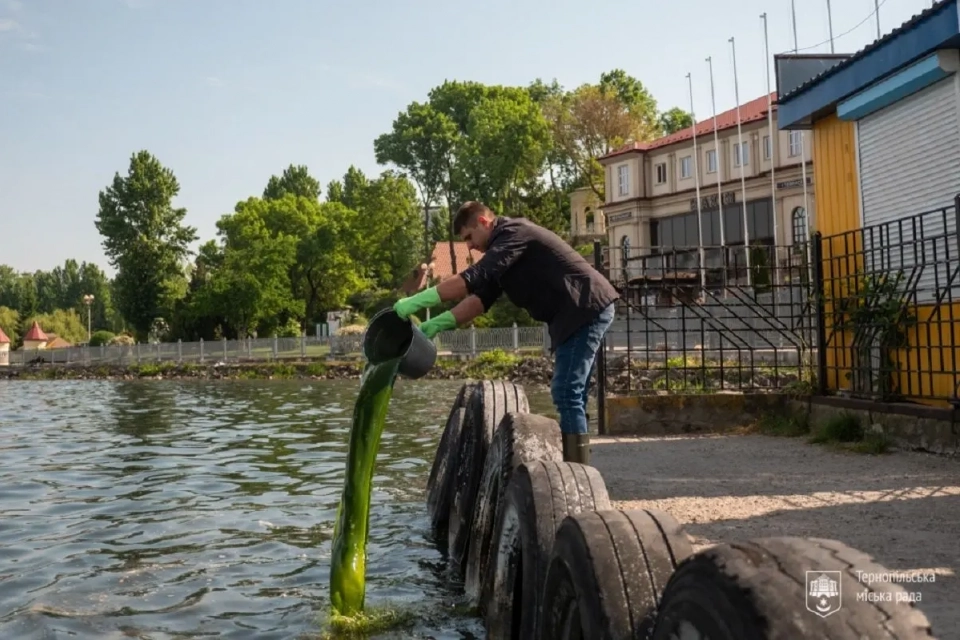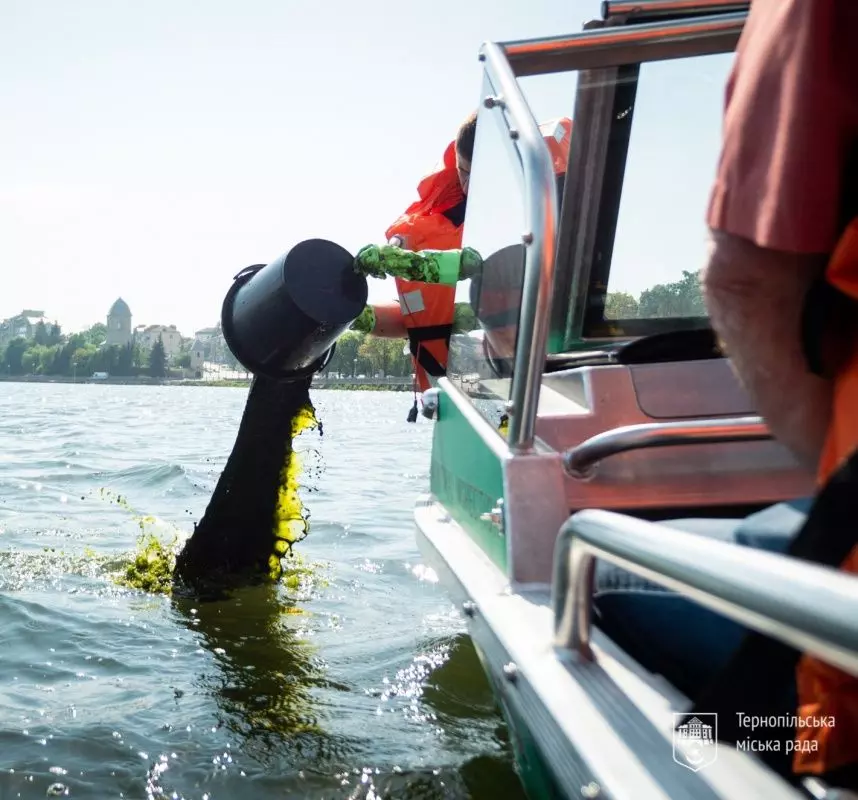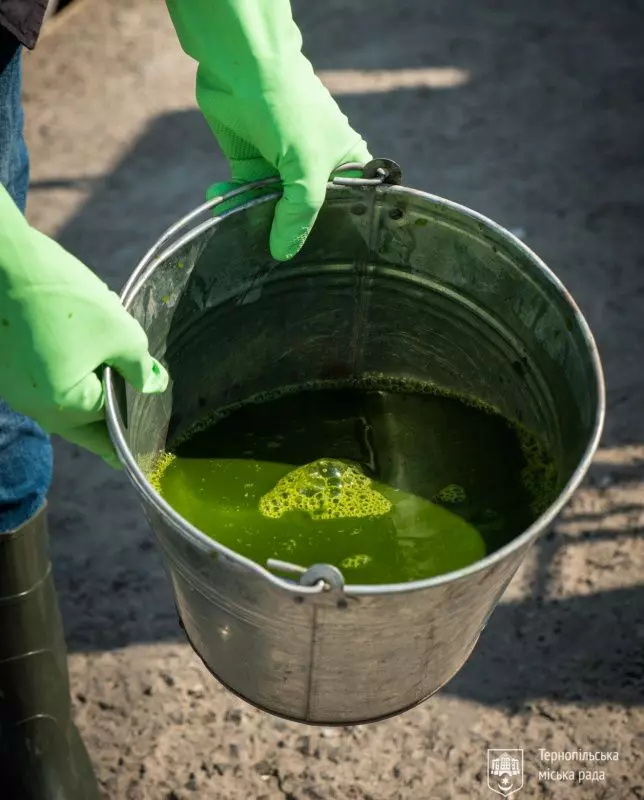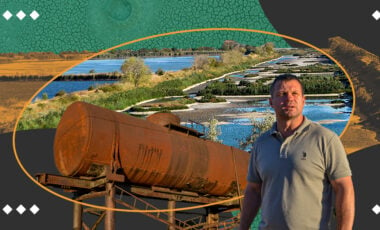Eco-solutions: Ternopil introduces biological paste for water purification

Photo: Ternopil City Council
In Ternopil, for the purpose of water purification, a biological paste, which will suppress the reproduction of blue-green algae, was introduced into the pond.
The Ternopil City Council reported this on the official website.
What is the problem?
Blue-green algae are actively reproducing with the onset of warm sunny weather and an increase in the air temperature in the water.
While spreading, blue-green algae suppress the decomposition processes of organic substances in reservoirs, cause the accumulation of toxic substances, absorb oxygen in reservoirs, and lead to massive pollution.
"Water blooming" is accompanied by a change in the color of the water, a characteristic unpleasant smell, a violation of the hydrochemical regime, a decrease in transparency, a deficiency of water-soluble oxygen, and, as a result, the death of aquatic living biological resources.
The main reasons for "water blooming":
- Inflow into water bodies of insufficiently purified wastewater containing a significant amount of phosphates and the influx of mineral fertilizers from the fields during torrential rains.
- High regulation of rivers, low flow, or absence
- Increased water temperature.
What is the solution?
In Ternopil, the program's implementation to restore the ecosystem of the pond and other city water bodies continues.
One hundred ninety-two kilograms of chlorella paste were added to the pond water.

Photo: Ternopil City Council
"This paste helps to clean the pond, suppresses the development of blue-green algae, and enriches the water with oxygen," the city councilors explain.
How does it work?
"Today, this method is one of the most modern and effective methods of biological water purification," the officials emphasized.
Photo: Ternopil City Council
A chlorella suspension was introduced into the Ternopil pond along the coastline from Chumatska Street to Tsyhanka Beach and around Chaika Island.
For the first time, the procedure of biological cleaning of the pond with chlorella suspension in the Ternopil pond was carried out by ecologists back in 2021.

Photo: Ternopil City Council
"This measure has proven its effectiveness, as the "blooming" of the reservoir has decreased and water quality indicators have improved to ensure the normal development and vital activity of living organisms," the press service of the city council reported.
For reference:
Chlorella is a genus of microscopic single-celled green algae, having the form of a microscopic immobile ball from 2 to 10 microns in diameter.
Outside, the cells are covered with a hard double-contour shell of a cellulose nature. The shell of many species contains a layer of sporopollenin, which gives it chemical resistance and strength.
Chlorella vulgaris, estimated to be roughly two billion years old, is an effective organic solution for combatting blue–green algae. Upon a high concentration of chlorella, the water in the affected area has a distinctively saturated green hue.





















































